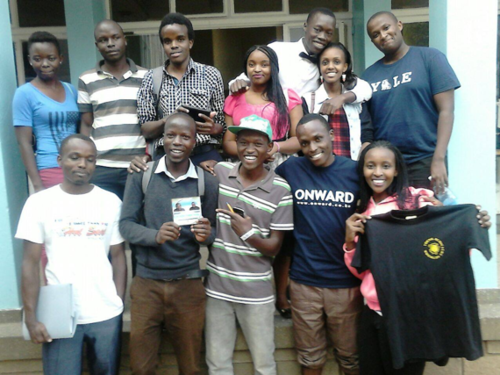
The Environmental Studies department is excited to announce that applications for its annual Summer Environmental Fellowship (SEF) are now open. All Yale undergraduates (rising sophomores through rising seniors) interested in learning about environmental issues are welcome to apply. EVST Juniors are especially encouraged to apply, as the SEF can be used to support summer research for senior thesis essays.
The SEF is open to all rising Yale sophomores, juniors, and seniors, regardless of major. A wide variety of summer plans qualify for the SEF, as long as they provide students with a substantive environmental research or training opportunity. Potential topics of work include but are not limited to environmental justice, community empowerment, sustainability advocacy, public health research, and ecological field studies. This fellowship is not able to support summer income contributions or summer courses.
Students interested in applying should visit the Yale Student Grants & Fellowships website here and search for “Summer Environmental Fellowship.” You can view a full list of past awards here and an interactive map of Summer Environmental Fellowships since 2014 here.
Below are examples of the many different ways students from the Environmental Studies Class of 2019 used their Summer Environmental Fellowships last summer.
Ian Ishmael Irungu worked on a sustainable waste recycling and disposal project in semi-urban Kenya. His thesis explores how possible changes in regulations of the energy sector could make it more attractive to foreign investment in renewable energy projects, with a focus on East Africa.
Franklin Eccher researched the modern social landscape of recreational trout fishing in the Cody region in northwest Wyoming. Franklin lived for a month on the Tensleep Preserve at the base of the Bighorn Mountains, working with The Nature Conservancy and interviewing professionals throughout the region. His senior essay is titled “The Hardier Fish: An Environmental History of Trout and Grayling Conservation in the Upper Missouri River Basin.”
Lekha Tlhotlhalemaje traveled to Pietermaritzburg, South Africa to work with the Association for Rural Advancement (AFRA), an organization dedicated to assisting farm dwellers and labor tenants in the midst of great human rights violations on farms, and gather data for her senior thesis, “Labor Tenants, Farm Dwellers and Land Reform in South Africa.” Her research project explored how affording land to labor tenants and farm dwellers can contribute to the quest for justice in South Africa.
Cayley Geffen continued research from the previous summer and fall about Bears Ears National Monument in preparation for her senior thesis on the past, present, and future of land use politics in Utah. Cayley has produced a full-length documentary film, Monumental: The Story of Bears Ears National Monument, to submit to the Yale Environmental Film Festival.
Connor Reed spent the summer designing, implementing, and establishing an experiment with an open-source, in-situ soil-moisture-monitoring system at Green Bird Organic Cellars in Northport, Michigan to develop a foundation for his senior thesis, “Engaging open-source precision viticulture to improve cover-cropping practice on an organic vineyard.”
Claire Rossi de Leon researched ranging and behavior of Howler monkeys along the banks of Riacho Pilagá in Formosa Province, Argentina to collect data for her senior essay. She learned not only about the habits of Howler monkeys, but also about research methods, independence, and perseverance.
Ellie Atkinson spent the summer in New Haven investigating air quality levels near schools in the city and analyzing the incidence of asthma at individual schools to collect data for her senior essay, “The Impact of Ambient Air Quality on the Incidence of Respiratory Diseases in a New Haven Schools.”
